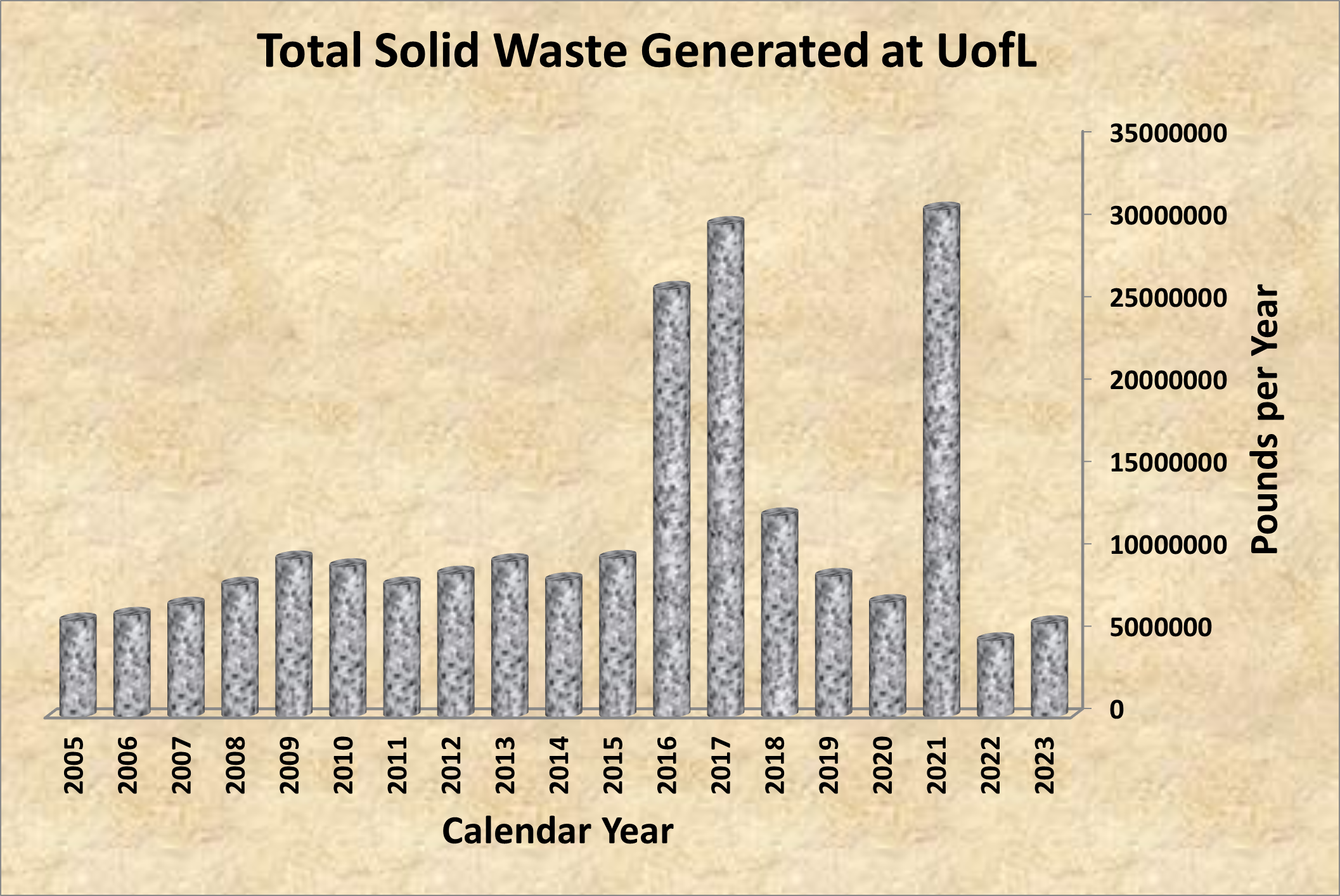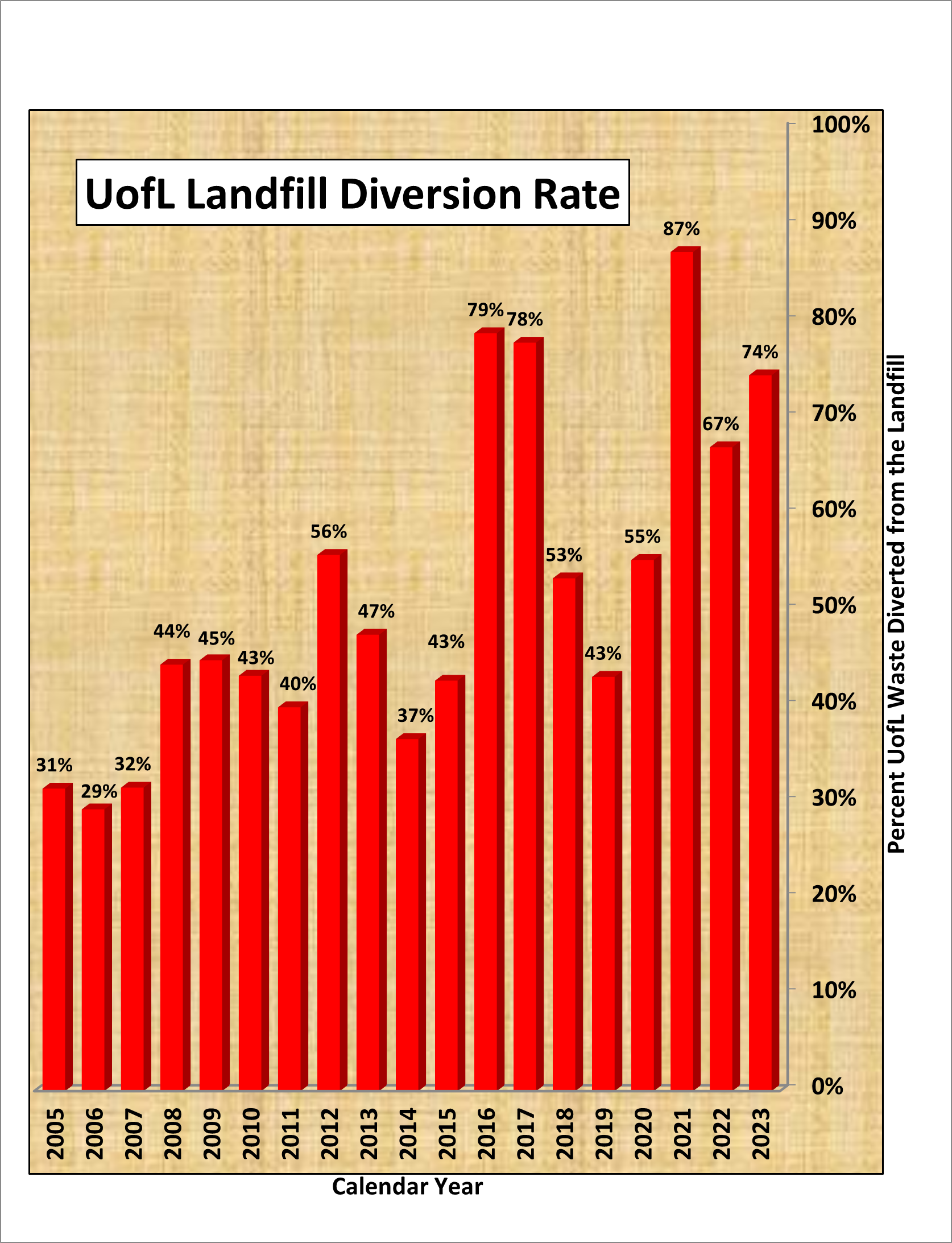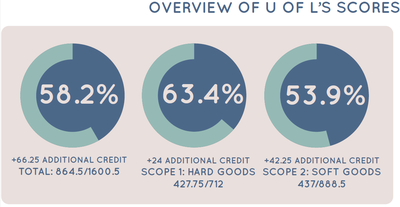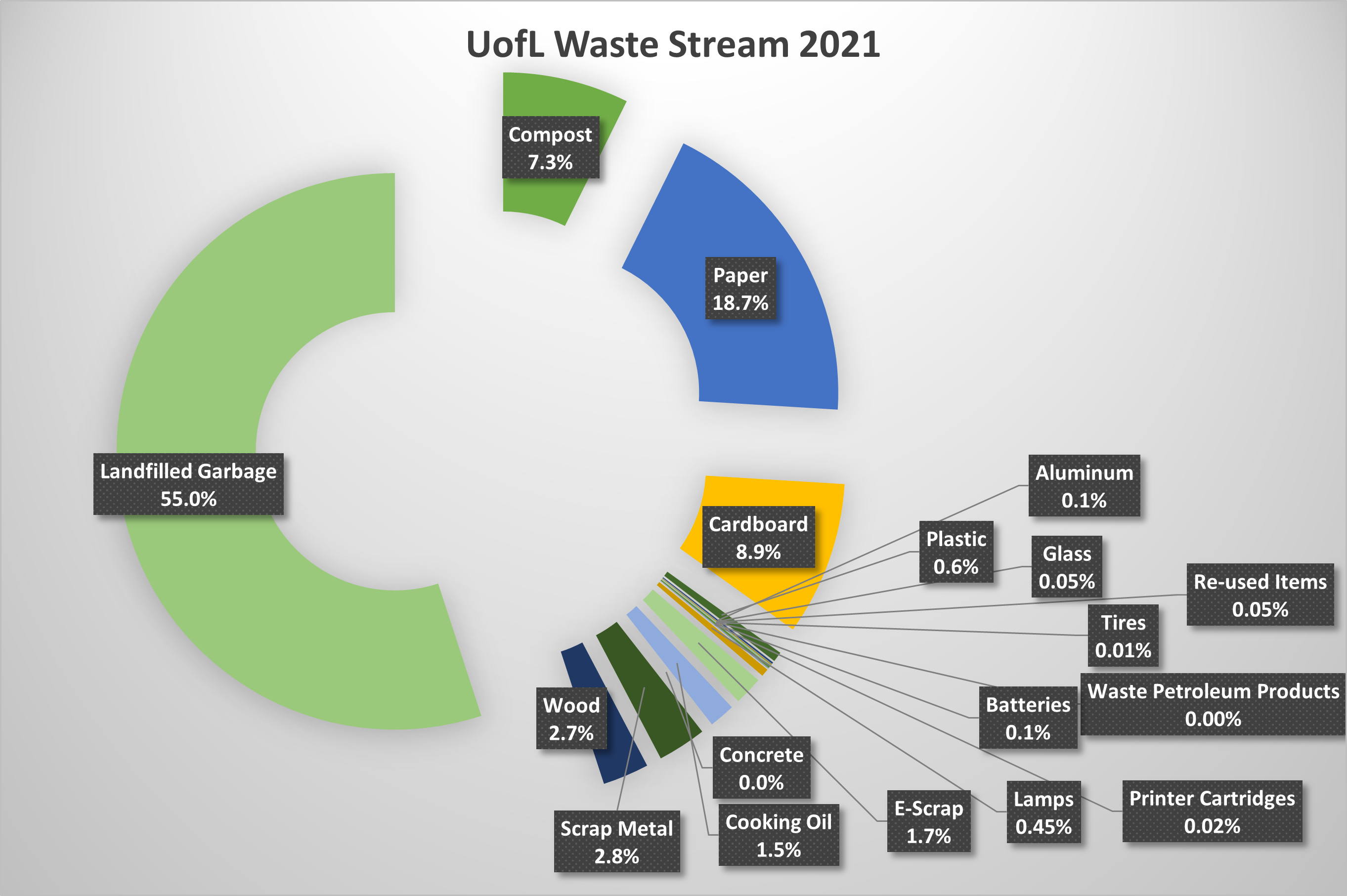UofL releases Strategic Vision for Zero Waste and annual Recycling Report
 In 2020, UofL continued cutting our total annual waste generation 4.3 fold from peaks in 2016-17, when we had a significant number of demolition, construction, and renovation projects that produced unusual quantities of waste. Yet we still generate 579,738 pounds of waste each month! That represents over 19 pounds of waste each month for every student, faculty, and staff member at UofL. (See our full 2020 Recycling Report.)
In 2020, UofL continued cutting our total annual waste generation 4.3 fold from peaks in 2016-17, when we had a significant number of demolition, construction, and renovation projects that produced unusual quantities of waste. Yet we still generate 579,738 pounds of waste each month! That represents over 19 pounds of waste each month for every student, faculty, and staff member at UofL. (See our full 2020 Recycling Report.)
We can do better! It is imperative that we step up our efforts to reduce the amount of solid waste produced on campus, and we can see the need to tackle this problem through a multifaceted, university-wide approach, as outlined in our 2021 Strategic Vision for Institutional Zero Waste. There is still much more we need to do in order to achieve our goal of Zero Waste.
 In 2020, we recycled/composted/reused over 3.8 million pounds (55%) of our waste. Our landfill diversion rate in 2020 without coal ash (from our shared HSC Steam & Chilled Water Plant) increased to 60.3%.
In 2020, we recycled/composted/reused over 3.8 million pounds (55%) of our waste. Our landfill diversion rate in 2020 without coal ash (from our shared HSC Steam & Chilled Water Plant) increased to 60.3%.
Recycling is a key principle, but true sustainability demands that it must always come AFTER efforts to significantly reduce waste generation in the first place and to reuse items whenever possible. UofL's Zero Waste programs include extensive recycling, reuse, composting, waste minimization, and other waste reduction efforts from the classroom to the construction site.
Zero Waste Planning
 Throughout 2020-21, UofL contracted with the student-led Post-Landfill Action Network (PLAN) to conduct a zero waste assessment and visioning process with a wide variety of stakeholders across the university. The process involved both PLAN staff and UofL Zero Waste Interns conducting data gathering, compiling reports, and facilitating forums, interviews, and conversations.
Throughout 2020-21, UofL contracted with the student-led Post-Landfill Action Network (PLAN) to conduct a zero waste assessment and visioning process with a wide variety of stakeholders across the university. The process involved both PLAN staff and UofL Zero Waste Interns conducting data gathering, compiling reports, and facilitating forums, interviews, and conversations.
In spring 2021, we released UofL's Strategic Vision for Institutional Zero Waste. This vision is the foundation for developing a comprehensive Zero Waste Plan and it is built on the findings of the zero waste assessment.
In November 2020, after conducting a comprehensive Zero Waste Atlas Assessment designed to help campuses assess and streamline campus systems for materials management, the Post-Landfill Action Network (PLAN) gave UofL an overall Zero Waste score of 58.2% (864.5 out of a total possible 1600.5 points).
This compares very favorably to the other campuses PLAN works with, which average between 40-50%.
 For Scope 1 surplus property and hard-to-recycle materials, UofL scored a 63.4% (427.75 + 24 additional credits out of a total possible 712 points).
For Scope 1 surplus property and hard-to-recycle materials, UofL scored a 63.4% (427.75 + 24 additional credits out of a total possible 712 points).
For Scope 2 food waste and single-use materials, UofL scored a 53.9% (437 +42.25 additional credits out of a total possible 888.5 points).
This assessment was conducted with the help of UofL's Zero Waste interns and laid the groundwork for the development of UofL's first Zero Waste Plan, which the Sustainability Council will begin to work on in 2021.
Read the full PLAN Atlas Stage 1 Report here.

In Spring 2020, the Sustainability Council hired PLAN to support two UofL Zero Waste interns - Lily Stewart ‘22 and Jacob Foushee ‘22 - to conduct a holistic assessment of the University’s waste management system. UofL has expressed commitment to not only increasing their waste diversion rate, but also changing the ways the campus purchases and manages goods to be in the best interests of the environment and the University. The final report is intended to identify concrete steps that UofL can take to shift towards a zero waste system and continue to uphold its reputation as a leader among sustainably-minded universities.
The interns used PLAN’s Zero Waste Atlas Assessment - a project designed to help campuses assess and streamline campus systems for materials management - to collect the information used to inform this report. This report offers a snapshot of existing programs, services and infrastructure, illustrates ideal material flows throughout a campus, and proposes recommendations to fill the gaps identified during the assessment. While this Atlas Assessment provides numerous suggestions based on its assessment of the capacity of existing campus systems and best practices from other campuses, campus stakeholders must ultimately decide on the exact path the University takes to achieve zero waste.



